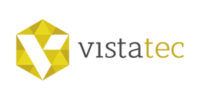The Nobu Hotel in London played host to one of the localization industry’s flagship events: SlatorCon London 2025. With more than 200 attendees from across the language, technology, and investment spectrum, the event was laser-focused on the one topic that is reshaping everything: Artificial Intelligence (AI).
Vistatec was in attendance, listening, exchanging ideas, and taking stock of how our own position as a leader in global content solutions continues to evolve with a changing industry.
Key Takeaways:
LSPs Are Now LSIs
The tone was set early on by Slator’s Managing Director, Florian Faes, who laid out a new market taxonomy. The legacy labels LSP and TMS are being replaced with something sharper: Language Solutions Integrators (LSIs) and Language Technology Platforms (LTPs). It’s not merely a question of semantics. The shift actually captures what many of us in the industry have been seeing for a while now.
At Vistatec, we have long combined language technology, process design, and human linguistic expertise into seamless solutions for global clients. Seeing the LSI model being recognized at an industry level affirmed the direction we have taken, where responsibility for delivering the final outcome doesn’t stop at translation. It includes the orchestration of people, platforms, processes, and AI.
AI Findings
New data showed that while 71% of consumers see benefits in AI-generated content, 82% want humans involved in the process. It is a stat that underscores something we have championed at Vistatec: AI requires oversight. The opportunity lies in combining smart technology with human expertise, and doing it in a way that is scalable and secure at the same time.
The investor panel reinforced this and highlighted early-stage AI-native startups that pair innovation with practical problem-solving. Growth capital is flowing toward companies that can operationalize AI without cutting corners.
Operational Models
A standout talk came from Clémentine Lerner of RS Group, who detailed her team’s journey to centralize localization. There was some initial resistance from stakeholders, but the payoff in consistency, efficiency, and stakeholder alignment was worth the effort.
This kind of transformation mirrors a broader trend we are seeing with Vistatec clients: localization is a business-critical function. Centralization can be efficient and makes localization a strategic partner in global growth.
Connected Ecosystems and Financial Localization
Another lively panel discussed integrated localization ecosystems as the new essential. Combining automation, orchestration, and analytics reduces production friction and unlocks faster delivery, all while improving customer experience. This is a space where Vistatec continues to invest. Through our tech-agnostic platform integrations and our in-house orchestration tools, we enable clients to reduce time-to-market and scale native-quality content.
AI Speech and Strategy
The conversation around dubbed speech and AI-generated voice raised some compelling points. There is evidently progress, but issues like prosody and emotional nuance remain challenging. Human emotion is harder to replicate and often essential for engagement. This is something that we focus on with our Vistatec AI solution, VistatecSpeech.
Conclusion
SlatorCon London 2025 painted a picture of an industry that is maturing quickly into a new normal. The hype around AI is giving way to operational models, client expectations, and questions of value and ethics.
At Vistatec, we are well aware of these shifts. Through enhanced AI-human workflows, better platform partnerships, and adapting our localization services for the needs of all global businesses, we are fully committed to delivering clarity and impact in every language.
Contact us today for more information on our services.

